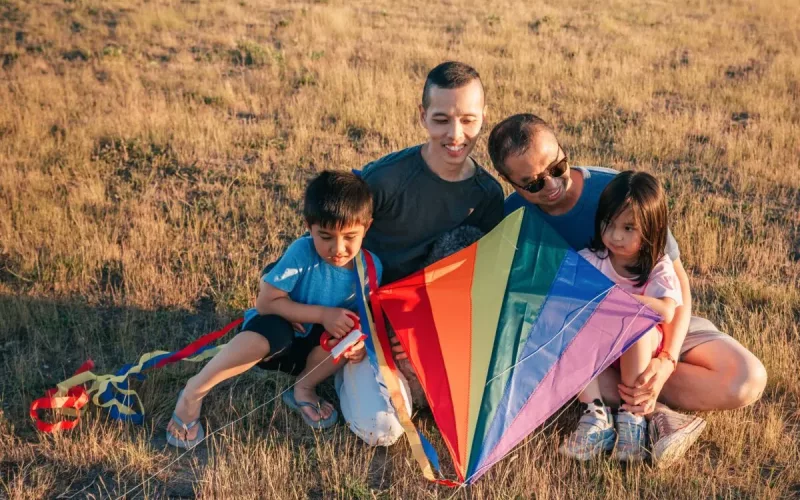The path to the landmark ruling of Obergefell v. Hodges (2015) was a long and arduous one, filled with decades of small victories and crushing losses, many of which went unrecognized. When same-sex marriage was finally deemed constitutional by the Supreme Court six years ago, it released all of the pent-up energy that had been steadily building in the hearts and minds of pro-same sex marriage advocates, legislators, lawyers, and judges. Obergefell opened the door for significant legal advancements to occur at the legislative and judicial levels in states across the nation, including Arizona, at a once unimaginable pace.
When the United States was hit by the COVID-19 pandemic, important issues, such as same-sex rights, fell to the wayside and all attention was placed on stemming the tide of the pandemic. Now that the vaccine is readily available and people are returning to their offices, it is a good time to assess the advancements made in Arizona, six years post the landmark ruling of Obergefell v. Hodges (2015).
Same-sex rights are still unfolding on a national level. As recently as May 2021, the State Department reversed its policy that “denied citizenship to some babies born abroad to same-sex parents,” according to a report by The New York Times [1]. Prior to the reversal, children born to same-sex parents in a foreign country were denied citizenship if the person carrying the child was not a United States citizen—even if the other parent was a citizen. For some, this may seem like a no brainer. After all, when the Supreme Court legalized same-sex marriage in Obergefell v. Hodges, didn’t they automatically grant same-sex couples the same parenting rights as opposite-sex couples? The answer is not so simple.
Prior to Obergefell, in 2008, Arizona voters passed Proposition 102, which created a definition of marriage as between one man and one woman in the Arizona Constitution. After Obergefell, 31 states, including Arizona, still have language banning same-sex marriage in their Constitutions. Additionally, same-sex couples continue to face significant roadblocks accessing their parental rights, largely based on the “presumption of paternity” that states afford to children born of opposite-sex couples. While the Supreme Court of the United States held bans on same-sex marriage to be unconstitutional, states were left to determine how to incorporate Obergefell into their statutes and constitutions and their definitions of who is a parent.
Under the traditional marital “presumption of paternity,” courts presume children born during an opposite-sex marriage are products of the marriage and the husband is the biological father of any children conceived during, or within ten months of, a marriage. The purpose of this presumption is to preserve a family unit. Historically, a person could rebut this presumption with evidence that it is impossible for the parent who did not give birth to be the biological parent of the child or if the husband wanted to disavow paternity, he could do so. However, in most cases, if both spouses wanted to continue to assert that the husband is the child’s father, even if it was biologically impossible, the actual biological father would be prevented from interfering in the family unit and proving his paternity.
For same-sex parents, this means that the partner who does not carry the child or biologically contribute to its creation may not be afforded the presumption of parentage in some jurisdictions (the term is “parentage,” as “paternity” is historically reserved for opposite-sex couples). In Arizona, the presumption of paternity statute is A.R.S. § 15-814.
Children Born to Same-sex Parents
This presumption continues to cause problems for children born to same-sex parents. In states that use the traditional marital presumption of paternity and have not adopted a gender-neutral interpretation, courts consider children born to same-sex couples to have one legal parent. For example, some view children born to same-sex couples through In Vitro Fertilization (IVF) to have one legal parent—either the person who carried the child or the biological father in the case of male couples. The other partner, though married to the person who carried the child or to the biological father, may not retain any legal decision-making authority over the child and may not be granted visitation in the event of a divorce. This is true regardless of whether the partner was a significant part in the upbringing of the child and/or if the legal parent intended for their partner to assume full parental rights.
In Arizona, paternity statutes must be interpreted in a gender-neutral manner. In 2017, the Supreme Court of Arizona held in McLaughlin v. Jones I the presumption of paternity recognized under A.R.S. § 25-814(A)(1) applies to same-sex spouses [3]. Not only was this case groundbreaking because it expanded the presumption of paternity to same-sex spouses but also it suggested that gendered paternity statutes may be unconstitutional.
Practically speaking, the paternity presumption does not apply to children born to two men where neither can give birth. The presumption of paternity has only been applied to opposite sex and female-female couples because the statute is written specifically to grant parentage to the spouse of someone who gives birth. This means that in a relationship between a male and a trans-male who gives birth, the trans-male’s spouse should be entitled to the presumption.
Same-Sex Adoption
Fortunately, Arizona permits same-sex adoption by spouses regardless of gender and stepparent adoption without regards to sexual orientation. Under A.R.S. § 8-103, not only are same-sex couples able to adopt children but single individuals who identify as LGBTQ+ may adopt. A stepparent adoption under A.R.S. § 8-106 allows one spouse to adopt the child of the other spouse if they already have custody (i.e., spouse B adopts the child from spouse A’s previous relationship) [5]. Stepparent adoption treats the adopting party as a stranger to the child and requires them to be licensed to adopt and pass a home study unless the parties have been married for over a year and, in most cases, have lived with the child for at least six months and the adopting party can pass a criminal background check.
Surrogacy in Arizona
It should be noted that it is presumed that surrogacy is not legal in Arizona, and it is not a mechanism by which a same-sex couple can legally become joint parents of a child without taking the extra step of adoption.
Arizona’s surrogacy statute—A.R.S. § 25-218—prohibits a person from entering into a “surrogate parentage contract,” and states that the surrogate is the legal parent of the child and is entitled to custody of said child, but the Arizona Supreme Court struck down this portion as unconstitutional. The same statute also entitles any spouse of the surrogate the presumption of parentage, but this presumption is rebuttable. A “surrogate parentage contract” is a “contract, agreement, or arrangement” where an individual agrees to the implantation of a foreign embryo or to conceive a “child through natural or artificial insemination.” A.R.S. § 25-218(D).
As noted, the surrogacy statute has been partially overturned on equal protection grounds. In Soos v. Superior Court (1994), the biological father of triplets challenged the statute, which deemed the surrogate to be the legal mother of the children, even though the biological mother donated the eggs that led to the conception [4]. The Court of Appeals of Arizona held that A.R.S. § 25-218 violated the equal protection clause when it allowed a biological father to prove paternity and automatically granted the surrogate status as the legal mother but did not provide the means for the biological mother to prove maternity. It remains unclear whether the remaining parts of the statute are enforceable and if surrogacy is still illegal in Arizona.
Same-Sex Marriage and Social Security Benefits
The Social Security Administration (SSA) awards survivors’ benefits based on the length of marriage and the circumstances of the survivor. The length of marriage requirement is met “if the marriage on which the relationship is based took place no later than 9 months immediately preceding the day on which the worker died” [6]. The requirement is met for shorter marriages if the worker’s death was accidental, occurred in the line of duty while in active military service, or the deceased spouse was institutionalized during the marriage [7].
Because same-sex marriage was not nationally legalized until 2015, it is difficult for certain individuals to receive survivors’ benefits. There are class action lawsuits currently in the works seeking to address survivor’s benefits: (1) for spouses who married after Obergefell but the spouse died before the requisite 9 months had passed and (2) for people who died before same-sex marriage became legal but are seeking (i) benefits for surviving children or (ii) to receive benefits by having their relationship recognized as a marriage retroactive to Obergefell.
What’s Next?
Undoubtedly, Obergefell paved the way for significant changes in the way some states’ statutes are interpreted with regards to parental rights. But getting to Obergefell was not easy. It is impossible to look toward the future of same-sex parenting rights in Arizona without acknowledging those who advocated and fought for marriage equality long before courts were willing to even consider the idea of same-sex marriage. It is a culmination of their dedication, tiny victories, and persistence in the face of adversity that has allowed Arizona to evolve its view on same-sex parenting rights and to pass laws reflecting the same.
Six years from now, who knows where we will be in terms of same-sex parental rights. There is still work to be done but, if you had asked someone just seven years ago, no one could have imagined we would have come this far.
[1] https://www.nytimes.com/2021/05/18/us/citizenship-babies-same-sex-parents.html
[2] Pavan v. Smith, 137 S. Ct. 2075 (2017) (holding both parents in a same-sex marriage have the right to be on their children’s birth certificates).
[3] McLaughlin v. Jones in and for County of Pima, 401 P.3d 492 (Ariz. 2017).
[4] Soos v. Superior Court, 182 Ariz. 470 (Ariz. 1994).
[4] www.lifelongadoptions.com/lgbt-adoption-resources/lgbt-adoption-laws/arizona
[5] https://secure.ssa.gov/poms.nsf/lnx/0200305100
[6] Id.
[7] Id.
Originally Published September 24, 2021 on OUTvoices Phoenix.
Claudia D. Work is an attorney at Scottsdale Family Law who served as lead counsel in the seminal same-sex rights case in Arizona, McLaughlin v. Jones in and for County of Pima (Ariz. 2017). Claudia’s practice focuses on all aspects of family law including same-sex family and unmarried cohabitant issues, guardianships, adoptions, assisted reproductive technologies (gestational carriers/surrogacy, IVF, AI, donation and embryo transfers), and contract disputes arising from personal relationships.
Isabel Ranney is a law student at the Sandra Day O’Connor College of Law at Arizona State University, Associate Editor for the Law Journal for Social Justice, and a clerk at Woodnick Law.



